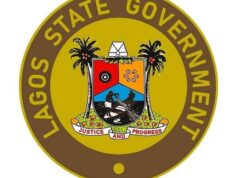For effective implementation of the Sustainable Development Goals (SDGs), and reduction of poverty in Africa, built professionals have implored government at the national and state levels, to incorporate the itemized targets in the national development and growth plans of the country.
According to them, the development agendas like the SDGs are indivisible, in a sense that it must be implemented as a whole, in an integrated rather than a fragmented manner, recognising that the different goals and targets are closely interlinked.
They said Governments must develop global Sustainable Development Goals, with a strong focus on issues such as natural resources management and environmental sustainability, reduction of rural to urban migration/increasing rate of urbanisation, curtailing the growth of slums in cities, sustainable consumption and production, effective institutions, decent housing, and peaceful societies.
They spoke at a conference on, ‘Sustainable Development Goals (SDGs) and Africa’ organised by the Faculty of Environmental Sciences, University of Lagos. The professionals observed that global partnership, supported by a comprehensive approach to the mobilisation of all means of implementation, and the infusion of all critical stakeholders was needed as well as strong follow-up and review mechanism which will allow all partners to assess the impact of their actions.
The Sustainable Development Goals (SDGs), a collection of 17 global goals was designed to be a “blueprint to achieve a better and more sustainable future for all” is currently in operation. The SDGs was set in 2015 by the United Nations General Assembly and intended to be achieved by the year 2030.
Besides, there are the completed Millennium Development Goals (MDGs), the New Urban Agenda (NUA) and the African Urban Agenda (AUA), both on the pipeline among others.
The lead speaker from the UN-Habitat, Abuja, Mr. Paul Okunlola, said the issues in SDGs are multifaceted, multidimensional and the success rates are varied stressing that there are concerns that some of the goals have not been met and so the United Nations, has declared a ‘decade of actions’ from this year to 2030 to mobilise increase support towards SDGs’ goals and targets.
Okunlola reiterated that people should be conscious of the fact that the goals and strategies exist and should pay attention and not just lip service to accomplishing the set goals.
He said: “Let the people also have a clear understanding that the SDGs are not only for the Elite nor people in government concerns, it is for everybody. If the climate is changing, it affects everybody, if our cities didn’t function well, it affects everyone. Government itself should take a clue and integrate it into their development planning so that when budgets and development plans are processed, it is base on a global template that the whole world is working with.”
“People should be very much aware of the goals by stepping up advocacy. A person can’t act on something you don’t know anything about. Many people won’t know if you ask about what is 2030 agenda?.
According to him, some of the challenges to implementing the SDGs in Africa include a high rate of urbanization, extreme weather conditions, war and conflicts, limited economic diversity and financial resources, deepening gaps in urban incomes, vulnerable employment, low level of social justice and inclusive growth, and prevalent weak institutional capacities.



